Bugs!
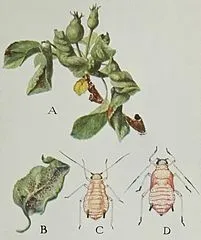
Do I spray insecticides for them? Nope! I grow my roses in a no-spray garden. There are a couple of ways that I get rid of them. One, I hit the plant with a strong blast of water from my hose. Make sure you spray the underside of the leaves. That will knock the little buggers to the ground, and they are too lazy to climb back up. Two, I squish them with my fingers. Now don't go euuuwwwwww! It works! Use gloves if you wish. Three, I have California native plants in my yard. They attract beneficial insects like ladybugs who love to feast on aphids. So, try doing these things to help remove aphids in your garden.
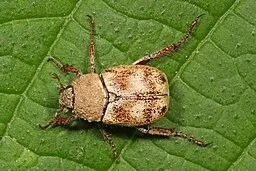
Hoplia beetles start as grubs in the soil. They grow slowly over the winter and then come out of the soil in the spring. They love to eat the flowers of your roses (their preferred diet) but will attack other flowering plants as well. You know you have them if you see holes in the petals of your roses. They will often hide in the center of the flower.
The best way to handle them? Pick them off with your hand and squish them or drop them in a bucket of soapy water. I have never been able to master the soapy water trick (I need a third hand for that), so I don leather gloves and squish them! Since they like light-colored roses, planting dark-colored roses might be helpful. You can also just cut off the flowers and dispose of them.
Unfortunately, sprays don't work to kill these little buggers. They love to hide in the interior of the blossoms, so it is difficult for the spray to get on them directly. If you do choose to try to use an insecticide to kill them, do not do it when bees and other beneficial insects are present as it will kill them as well. In about six weeks or so, the beetles will be gone for another year. One must have patience as a gardener. Dealing with Hoplia beetles is a good lesson in patience. By the way, I do try to get out and squish them twice a day. Once in the morning and once in the evening. It's an effective way to check on my garden and it is a great way to unwind from the day.
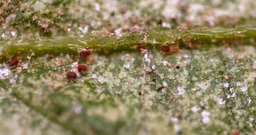
If you choose to use a chemical for spider mites, both horticultural oils and soap will work. Insecticides don't work on spider mites. They are a mite which is different species. So, check the label to see if the designation, “miticide,” is present. Pesticides claiming they are “for mite suppression” are usually weak and will not perform well or will require multiple applications.
Do not use them when bees and other beneficial insects are present. Do not use a dormant or horticultural oil when it is going to be over 80 degrees that day as it can burn your plants. Don't use it if it is going to rain. If you are going to use these chemicals, you must dress the part and use eye protection, a face mask, gloves and preferably suit up. Dispose of any leftover chemical properly and wash up/shower afterward (including washing your hair).
Fungal diseases
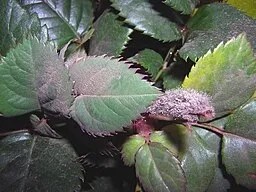
Another fungal disease you might see on your rose bushes is black spot. It looks just like the name says, black spots with sometimes feathery margins on your rose leaves. The spores of this fungal disease spread by splashing water, so don't sprinkle your rose plants at night. There are also rose varieties that are black spot resistant. So, look for those if black spot is a problem in your garden.
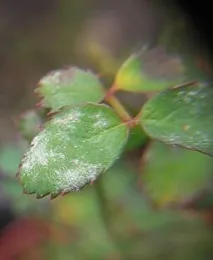
When your roses have completed their first bloom, it will be time to deadhead and feed them. You should get a nice second bloom about six weeks after the feeding.
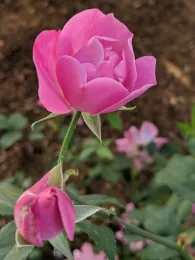
Alice Hamilton! This antique rose is named after Alice Hamilton who was an American physician, research scientist and author. She was a leading expert in the health field and is considered to be the mother of occupational health in this country. This during a time when women could not vote! She became an M.D. at age 24 in 1893 when she graduated from the University of Michigan Medical School. She was the first woman appointed to the faculty of Harvard University in 1919. I could go on and on about this amazing woman, but I hope you check out her bio and her rose.
Until Next Time…”Teaching you how to grow a garden is better than giving you a thousand roses.” Matshona Dhliwayo


